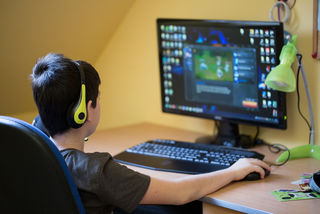Adolescence
The Balance Between Online Privacy and Monitoring
Should parents monitor teens online behavior, and if so, to what extent?
Posted October 1, 2017

The adolescent world revolves around technology. In fact, some studies report that teens are spending most of their waking hours online. With so much 'connected' time, it raises the question, "How involved should parents be in their teens online life?" I was recently asked a series of questions pertaining to this very topic and shared my responses below.
Should parents monitor their teens browsing history?
I believe it’s important for parents to monitor their teens browsing history, but there is a caveat. Many teens know how to cover their tracks, such as going incognito, disabling cookies, and clearing browsing history, making it virtually impossible for parents to monitor their online activity. Although teens may set up ‘smoke screens,’ it doesn’t mean parents shouldn’t keep an eye on what they are doing online. If parents aren't tech savvy, a lot of service providers have parenting resources to help them keep up with what's trending and stay informed about how to protect their teen.

Will parents ever be able to stay ahead of technology?
What works today may not work tomorrow. The technological industry is fast-paced and ever-changing. I would have never imagined all the advancements that exist today, nor can I begin to fathom how tech savvy the next generation will be. I only suspect today’s generation will be more confident with technology as it is a large part of their daily lives.
To address how fast things change, I was recently speaking with a parent who shared that her daughter expected to see the person talking on the screen of the device.In her daughter’s world, a phone call consisted of verbal and visual interaction. Just think, Skype made its first appearance in 2003 and FaceTime in 2010, and both have continued to grow in popularity with youth. As a result, today's teens spend a lot of time video calling friends.
I believe each generation is going to be attempting to catch up with technology. So, proactive education will be key in keeping educators and parents in the loop with modern advancements, as well as online hidden dangers. It’s important that we prepare youth to be digitally responsible citizens.
Are rules and boundaries necessary?
Yes, when it comes to the Internet and electronic devices, parents should establish clear boundaries. An acceptable device use contract, like those provided by Safekids.com, is a great way to document expectations. When parents have a signed agreement then it’s much easier to manage online behaviors. The contract should be reviewed periodically, and updated as what's applicable today may not be relevant in a couple of months.
In the contract, online rules and expectations, along with consequences for deviant behavior should be clearly stated. In the event teens misuse their device, there should be a predetermined consequence. Consistency is important because when parents aren’t consistent, teens will believe the contract is a joke and they will continue to test their limits. Additionally, it's important to conduct random device searches. Teens should not have any forewarning of the search as they may try to clear or delete information. Hopefully, as teens get older and demonstrate greater responsibility, parents will be able to allow more freedom.

How important is privacy?
The quest for independence and privacy is a normal part of adolescent development. Teens want privacy and that should be respected. Monitoring online behavior should change as teens age. Parents would not need to monitor a 17-year-old’s online behavior like they would a 13-year-old's unless they suspected their older teen was in engaging in harmful behavior—then safety always trumps privacy. Although many younger teens want to act grown up, they often lack the skills to handle complicated dilemmas, resist peer pressure, etc. Therefore, it is up to parents stay in tune with what their teen is doing both online and off.
Finding the right balance between privacy and monitoring can be difficult. Sure, parents can micromanage online behavior, but that may create an environment of resistance and mistrust. When it comes to monitoring, I believe it’s about honesty, expectations, and respect. Checking teens online behavior shouldn’t be an I ‘gotcha’ moment, but rather an opportunity to teach responsible digital citizenship.


